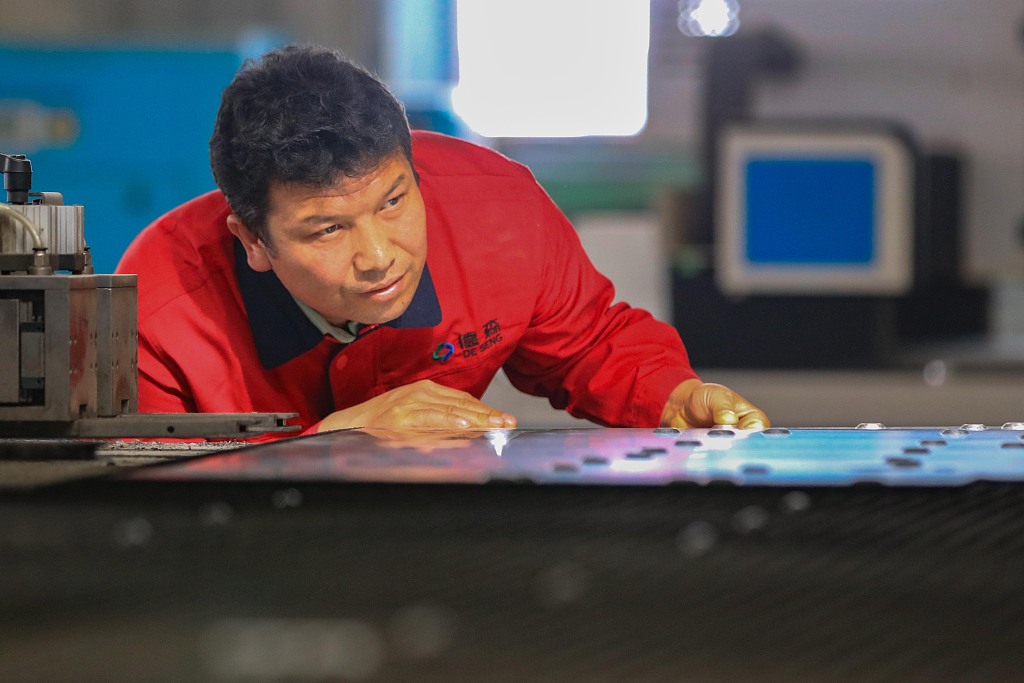Xinjiang makes strides in high-quality development


Despite the sanctions imposed by some Western countries on photovoltaic and cotton products produced in the Xinjiang Uygur autonomous region over allegations of "forced labor", the development of these industries remained strong last year, according to statistics released on Tuesday.
Erkin Tuniyaz, chairman of the region, said at a news conference in Beijing that the growth of Xin-jiang's six key economic indicators last year, including GDP, investment in fixed assets as well as imports and exports, all ranked among the top five in the country, making 2023 the best year in terms of the region's socioeconomic development.
The news conference, held by the State Council Information Office, focused on Xinjiang's practices in advancing Chinese modernization with breakthroughs in high-quality development.
To build a modern industrial system for high-quality development, besides stepping up the exploration and development of oil and gas resources, the region has also vigorously developed the new energy and new materials industries, Erkin Tuniyaz said.
The production of industrial silicon rose 27.3 percent year-on-year in 2023, while polysilicon output increased 26.8 percent, he said.
Meanwhile, the region's agricultural industry has also been boosted. The annual growth in grain planting area and production in Xinjiang in 2023 both ranked top in the country. Also, cotton production last year totaled 5.11 million metric tons, accounting for 91 percent of the national total, and 89 percent of the cotton was harvested by machine, he added.
In December 2021, United States President Joe Biden signed the so-called "Uyghur Forced Labor Prevention Act" into law, imposing sanctions on individuals allegedly responsible for "forced labor" in the region. Cotton, tomatoes and polysilicon used in solar-panel manufacturing are designated as "high priority" for enforcement action.
The Chinese government has repeatedly stated that the falsehood of "forced labor" in Xin-jiang is fabricated by anti-China forces, which is completely opposite to the facts. The move is an upgrade of the US' crackdown on China under the pretext of human rights and an example of the US wantonly undermining international trade rules and the stability of international supply chains.
Chen Weijun, executive vice-chairman of Xinjiang, said at the news conference that the region will further open up to global markets by creating a "golden corridor" between Asia and Europe.
By pushing forward the construction of the core area of the Silk Road Economic Belt, Xinjiang has changed from a relatively closed landlocked region to the forefront of China's westward opening-up, Chen said.
"In 2007, the region's foreign trade volume reached 100 billion yuan ($13.82 billion). It took 15 years for the figure to reach 200 billion yuan in 2022. Last year, Xinjiang's foreign trade volume reached 357.3 billion yuan and it's expected to exceed 400 billion yuan this year," he said.
Chen added that the region will particularly enhance cooperation with Central Asian countries including Kazakhstan, Uzbekistan, Kyrgyzstan, Tajikistan and Turkmenistan in the new energy, medical care and agriculture sectors.
cuijia@chinadaily.com.cn




































